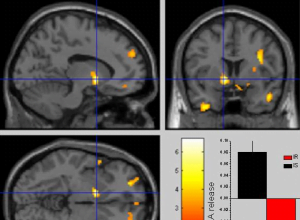We have talked about some of the biggest ways that technology is changing the future of healthcare. These developments come at the perfect time, as the healthcare sector is facing a number of pressing challenges, including regulatory changes and shrinking operating margins.
- What is Patient-Focused Healthcare?
- 7 Ways Conversational AI is Making Healthcare More Patient-Centric
- Listening to What Patients Want
- Connecting Different Parts of Healthcare
- Teaching Patients in Ways They Understand
- Improving Comfort and Support
- Making Healthcare Faster
- Helping Families Care for Loved Ones
- Keeping Care Connected and Safe
- Conclusion
One of the biggest technological breakthroughs in the healthcare sector is AI. AI is going to be a gamechanger for patients and healthcare providers alike.
The healthcare industry is undergoing a significant change thanks to the integration of conversational AI. This is one of the biggest reasons that the market size for AI in healthcare is expected to be worth over $148 billion by 2029. This innovative technology is reshaping how patients interact with healthcare providers, making medical care more accessible and personalized than ever before.
Conversational AI, which includes chatbots and virtual assistants, is now playing a crucial role in various aspects of healthcare. From scheduling appointments to providing basic medical advice, healthcare conversational AI is helping both patients and doctors streamline their interactions and improve care delivery.
Doctors are using conversational AI to manage routine tasks, freeing up more time for complex patient care. Meanwhile, patients benefit from 24/7 access to health information and support.
This article explores how these AI technologies are revolutionizing healthcare, putting patient needs and preferences at the forefront of medical care.
What is Patient-Focused Healthcare?
Patient-focused healthcare is a modern approach to medical care that puts the patient at the center of everything. It’s not just about treating an illness; it’s about caring for the whole person. This approach recognizes that each patient is unique, with their own needs, preferences, and circumstances.
At its core, patient-focused healthcare is about three main things. First, it ensures that patients receive information in ways they can easily understand. Medical jargon is replaced with clear, simple explanations, helping patients fully grasp their health situation.
Second, it actively involves patients in decisions about their care. Doctors and nurses work with patients, not just for them. They explain options, discuss potential outcomes, and consider the patient’s personal goals and values when making treatment plans.
Lastly, patient-focused care aims to provide a smooth healthcare journey from start to finish. This means coordinating different aspects of care, from doctor’s visits to tests and treatments, to ensure a seamless experience for the patient.
7 Ways Conversational AI is Making Healthcare More Patient-Centric
Here’s how conversational AI is helping to put patients at the center of healthcare:
Listening to What Patients Want
Conversational AI is transforming how healthcare providers understand and respond to patient preferences. These smart-systems can learn from each interaction, determining what matters most to individual patients.
For example, if a patient shows a keen interest in understanding their condition in detail, the AI can provide comprehensive information, even if it doesn’t directly impact treatment decisions.
This personalized approach extends to treatment options too. The AI can present choices that align with the patient’s values, whether they prioritize quality of life, minimal side effects, or aggressive treatment.
Using these preferences from multiple interactions, the AI ensures that all future communications and recommendations are tailored to what the patient finds most valuable, creating a more respectful and patient-centered healthcare experience.
Connecting Different Parts of Healthcare
Conversational AI is a digital bridge, connecting various healthcare providers and departments seamlessly. This integration is crucial for patient-centered care, ensuring that all aspects of a patient’s health journey are coordinated and consistent.
For instance, AI systems can predict peak times in emergency rooms by analyzing historical data and current trends. This allows hospitals to optimize staffing and resources, reducing wait times and prioritizing urgent cases.
The AI can also track a patient’s journey through different departments, ensuring that important information isn’t lost in the handover process. Moreover, these systems can coordinate follow-up appointments, medication schedules, and post-treatment care across different specialists and facilities.
This comprehensive approach ensures that patients receive cohesive care, reducing the risk of conflicting treatments or overlooked health issues, and ultimately improving the overall quality of healthcare delivery.
Teaching Patients in Ways They Understand
One of the key strengths of conversational AI in healthcare is its ability to educate patients effectively. These AI systems can generate and communicate complex medical information in ways that are easy for patients to understand, regardless of their background or education level.
For example, when explaining a diagnosis or treatment plan, the AI can create clear, standardized reports enhanced with explanatory images or animations. It can break down complex medical terms into simpler language and use analogies that resonate with the patient’s experiences.
Furthermore, the AI can adapt its communication style based on the patient’s preferences and comprehension level. If a patient seems confused, it can rephrase explanations or offer additional resources.
Improving Comfort and Support
Conversational AI is making big strides in enhancing patient comfort, both physically and emotionally. While AI can’t replace human empathy, it’s excellent at analyzing data to improve physical comfort. For instance, AI can use large amounts of patient data to suggest personalized medication choices for better pain management.
This technology can also provide round-the-clock support, answering questions and offering reassurance when human staff are unavailable. It can remind patients about medication schedules or suggest relaxation techniques to manage stress.
Constantly learning from patient interactions, an AI can anticipate needs and offer proactive support, creating a more comfortable and supportive healthcare environment.
Making Healthcare Faster
One of the biggest benefits of conversational AI in healthcare is its ability to speed things up. AI can quickly process information and make decisions, which helps reduce waiting times for important tests and expert advice.
For example, AI can optimize how MRI machines are used, making scans faster and reducing wait times. It can also quickly sort through patient symptoms and medical histories to help doctors make faster, more accurate diagnoses.
This means patients can get the care they need sooner, which can make a big difference in their treatment and recovery.
Helping Families Care for Loved Ones
Conversational AI is becoming a valuable tool for families caring for sick loved ones. It can provide clear, step-by-step instructions on how to perform basic care tasks at home. This support can make a big difference in providing proper care for complex health conditions.
For instance, AI-powered devices can guide family members on how to properly change dressings, administer medication, or use medical equipment.
The AI can answer questions, provide reminders, and even alert healthcare providers if there are any concerns. This not only improves the quality of care but also gives families more confidence in their caregiving abilities.
Keeping Care Connected and Safe
Conversational AI ensures patient care remains consistent and secure, especially when patients move between different healthcare settings. AI systems can securely manage and share patient information, making sure that important details don’t get lost.
For example, when a patient moves from a hospital to a rehabilitation center, AI can ensure that all relevant medical history, treatment plans, and care instructions are accurately transferred.
This seamless flow of information helps prevent errors, reduces the need for repeated tests, and ensures consistent care throughout. The AI can also flag any potential issues or inconsistencies, adding an extra layer of safety to patient care transitions.
Conclusion
Conversational AI is changing healthcare for the better, making it more focused on what patients need and want. It’s helping doctors understand patients better, connecting different parts of healthcare, and teaching patients about their health in ways they can easily grasp.
This technology is also making healthcare faster and helping families care for loved ones at home. While there are challenges, like keeping information private and ensuring the AI works safely, the benefits are significant.
As we move forward, using AI responsibly will be key to creating a healthcare system that truly puts patients first, leading to better care and healthier outcomes for everyone.








